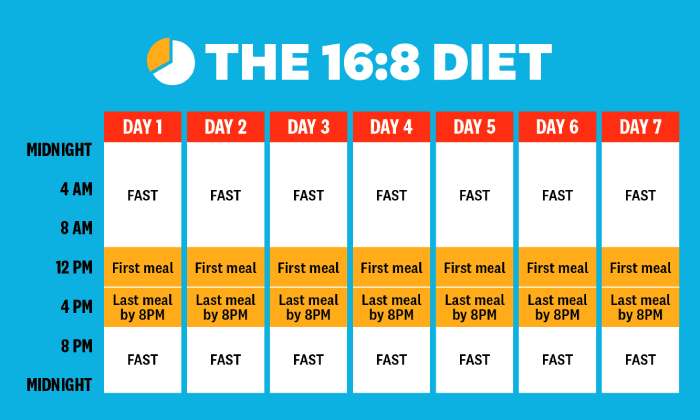How Much Can You Lose by Not Eating for a Month? Studies show that intermittent fasting can lead to significant weight loss in just one month.
But, you must know the risks of extended fasting and the importance of safe fasting practices.
Read on to learn more about the benefits of fasting, calories, weight loss, and the long-term results of fasting for a month.
Contents
- 1 Benefits of Fasting: Understanding Positive Effects on the Body
- 1.1 Risks of Extended Fasting: Recognizing Potential Health Concerns
- 1.2 Calories and Weight Loss: The Relationship Between Intake and Loss
- 1.3 Long-Term Results: Examining the Impact Beyond the Fasting Period
- 1.4 Safe Fasting Practices: Guidelines for Healthy and Controlled Fasting
- 1.5 Frequently Asked Questions:
- 1.6 Conclusion:
Benefits of Fasting: Understanding Positive Effects on the Body
You can reap many benefits from fasting, including intermittent fasting. Fasting has been used for centuries for spiritual and health purposes. It’s a way to cleanse the body of toxins and allow it to rest.
Fasting also induces metabolic changes, resulting in weight loss and improved health. Intermittent fasting can reduce inflammation, improve insulin sensitivity, and decrease cholesterol levels. Research suggests that it can help reduce the risk of type 2 diabetes, heart disease, and certain types of cancer.
Additionally, it can lead to improved mental clarity and focus and increased energy levels. Fasting is a powerful tool for improving health and well-being.
Risks of Extended Fasting: Recognizing Potential Health Concerns
However, it’s important to note that extended fasting can also pose risks to your health. These risks include:
- Avoiding malnutrition: Without food, your body will be deprived of essential vitamins, minerals, and other nutrients, leading to serious health problems.
- Dehydration: Prolonged fasting can lead to dehydration, which can be dangerous and even life-threatening.
- Breaking fasts too quickly: Going from fasting to eating a large meal can strain your digestive system, leading to dizziness and nausea.
- Unhealthy weight loss: Extremely restrictive diets can lead to unhealthy levels of weight loss, which can be difficult to maintain.
Discussing the risks of extended fasting with a doctor before attempting it is important.
Calories and Weight Loss: The Relationship Between Intake and Loss

Building on the risks of extended fasting, it’s important to consider how calories and weight loss are related when deciding how much weight you can lose by not eating for a month.
Regarding meal planning and calorie counting, there are several factors to consider. Generally, an individual needs to consume fewer calories than they use to lose weight. The amount of calories a person can consume without gaining weight is determined by their basal metabolic rate (BMR).
To lose one pound, a person needs to create a 3,500-calorie deficit, meaning they need to consume 3,500 fewer calories than they use. Not eating for a month can create a large calorie deficit, leading to significant weight loss.
However, it’s important to note that the health risks associated with extended fasting should be considered before attempting this diet.
Long-Term Results: Examining the Impact Beyond the Fasting Period

Carrying on from the discussion of calorie and weight loss, it’s important to consider the long-term results of not eating for a month. While it’s possible to lose a significant amount of weight in a short time, the health implications and sustainability of such a strategy should be considered.
Regular exercise and portion control provides a healthier way to lose weight and keep it off:
- Eating regular meals helps to maintain a healthy metabolism.
- Exercise stimulates the body to burn calories more efficiently.
- Long-term weight loss is more achievable with portion control.
- Lifestyle changes help to sustain weight loss for the long term.
It is important to remember that any extreme weight loss method may be effective in the short term, but it isn’t sustainable. Regular exercise and portion control are the best way to achieve long-term weight loss success.
Safe Fasting Practices: Guidelines for Healthy and Controlled Fasting
How often should you safely fast if you’re aiming to lose weight by not eating for a month?
Mindful fasting, also known as intermittent fasting, is a safe practice that can be used to lose weight. It involves following a set eating schedule, such as only eating for a certain number of hours each day and fasting the rest of the time. When done correctly, mindful fasting can help to reduce calorie intake without sacrificing essential nutrients.
However, it’s important to note that mindful fasting should be done in moderation since fasting for too long can cause serious health problems. Additionally, it’s essential to include other healthy lifestyle habits, such as physical activity and stress management, into your routine to achieve maximum weight loss results.
Frequently Asked Questions:
Fasting can produce weight loss results quickly, but the health risks outweigh the benefits. Combined with proper nutrition, exercise is the safest and most effective path to long-term weight loss.
You’ll want to focus on eating healthily while water fasting. To draw you in, consider this: fasting can be a powerful tool for healthy weight loss. Research shows that eating nutrient-dense foods while abstaining from calorie-dense foods can help achieve your goals.
Fasting for over a month can bring health benefits, but there are risks, too. Consider consulting your doctor before proceeding to ensure it’s safe for you.
It is possible to regain weight after fasting, depending on your eating habits and lifestyle. Intermittent fasting and reducing cravings can help you maintain your weight loss. Make sure to consult a health professional before fasting for more than a month.
Stay hydrated and reap the rewards of fasting by taking the right supplements. Ensure your body gets the vitamins and minerals it needs while you experience the benefits of fasting.
Conclusion:
Fasting can be a great way to jump-start your health journey. It’s important to be informed and aware of the risks. By following safe fasting practices and understanding the connection between calories and weight loss, you can reach your goals without the dangers of extended fasting.
Ultimately, deciding what works best for your body and lifestyle is up to you. But remember, Rome wasn’t built in a day.

Santhan, known to many as Linda, combines her personal training expertise with exceptional motivational coaching skills. Her articles are not just informative but also incredibly inspiring, encouraging readers to take action and pursue their fitness goals. Linda’s unique approach to writing integrates practical fitness guidance with motivational elements, making her content both useful and uplifting.
